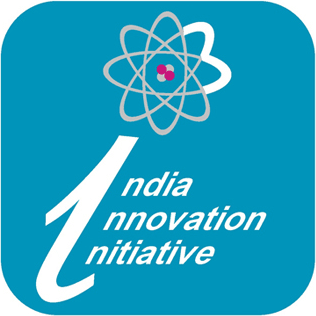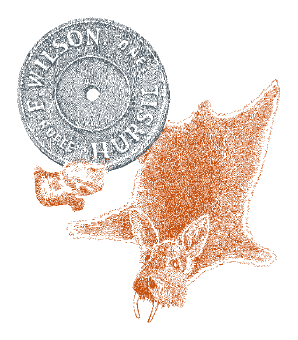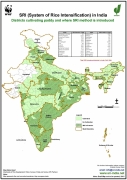/sub-categories/news-and-articles
News and Articles
Estimation of irrigation return flow in Lokapavani area of KR Sagar command in Karnataka - A research report by National Institute of Hydrology
Posted on 21 Jun, 2010 12:22 AMThe study deals with the estimation of hydrological soil properties of the area of Lokapavani River in KR Sagar Command in Mandya district of Karnataka. The properties determined are soil texture, porosity, saturated hydraulic conductivity, specific gravity and soil moisture characteristics.
The disturbed and undisturbed soil samples from eighteen locations along different depths were collected and analyzed. Eighty-five disturbed soil samples were used to determine the grain size distribution, porosity, specific gravity and soil moisture characteristic curves with the help of electromagnetic sieve shaker, master sizer, GeoPyc and pressure plate apparatus. Twenty undisturbed soil samples were used to determine saturated hydraulic conductivity with ICW Permeameter.
Surface water quality assessment of river Kali with special emphasis on non point source of pollution – A research report by the National Institute of Hydrology
Posted on 20 Jun, 2010 11:52 PMThe study conducts an extensive water quality survey in sixteen reaches of Kali river in western Uttar Pradesh to estimate the inflow of two major nutrients (nitrate and phosphate) from point and non-point sources. The study intends to validate the present model based on the principle of conservation of mass and reaction kinetics phenomenon.
Data was taken for one annual cycle on a monthly basis and criteria developed to compute the non point source load from nine sub-basins in various stretches of the river. The computed loads at each section obtained from the predictive equation have been compared with the values observed in the field. The performance of the developed equation has been evaluated using percentage error estimation and correlation statistics. Remote sensing and geographical information systems (GIS) have been used to develop correlation between basin characteristics and non-point source loads.
Effective groundwater management in urban areas
Posted on 20 Jun, 2010 06:32 PMOften groundwater pumping is undertaken assuming the resource to be infinite. This myth has been shattered in the last few decades with increasing scarcity and deterioration in terms of quality as a consequence of over-exploitation and mismanagement of this resource to meet competing demands for drinking water and other needs in urban cities. However, managing groundwater is not an easy task.
Tairne wala samaj doob raha hai: An essay by Anupam Mishra on the Bihar Floods
Posted on 18 Jun, 2010 09:55 PMSmall and big dams and big embankments were constructed in this region, without understanding the nature of the rivers which have always changed course or overshot their banks. Assuming however, that the river will not change course, the Government adopted a skewed development program - that of building embankments to contain the river.

Agilent Technologies: India Innovation Initiative - i3
Posted on 18 Jun, 2010 12:41 PMContent and Image Courtesy: India Innovation Initiative

The objective of the India Innovation Initiative project is to create an innovation eco-system in the country by sensitizing, encouraging and promoting innovators and facilitating commercialization of the innovations.
DST and CII jointly launched the Young Inventors initiative "Steer the Big Idea" in the year 2004. It was aimed at capturing the innovative ideas from young innovators for the benefit of Industry & society. In 2005, CII & DST joined hands with Industry to form IRIS - Initiative for Research and Innovation in Science. IRIS has been focused so far on school students i.e. innovators below the age group of 18 years. Agilent has been organizing the Agilent Engineering and Technology Awards through which it has been encouraging engineering students towards hands-on engineering in India and recognizing innovation.
CII & DST have now joined hands with Agilent to launch the nation-wide innovation competition for all innovators above the age group of 18+.
Need to bring focus of water & agriculture policies onto rainfed farming : SANDRP May '10
Posted on 18 Jun, 2010 11:03 AM![]()
The Dams, Rivers and People issue for Apr-May 2010 is out. The state government policies, programmes and practices in water resources and highlights the need to bring focus of water & agriculture policies onto rainfed Farming. It is likely to yeild better economic, hydrologic, sustainable, equitable and climate friendly results and foodgrains production as per our future demands.
Ek Phirangi Raja - Chutki Bhar Namak Paseri Bhar Anyay: The story of Frederick Wilson and the Great Indian Hedge
Posted on 18 Jun, 2010 12:33 AM Ek Phirangi Raja
Ek Phirangi Raja
In this essay, Romesh Bedi recounts the true story of Frederick E Wilson, a British army officer, who deserted the army after the Sepoy Mutiny of 1957, escaped to the Himalayas, and settled in Harsil, a remote village in Uttarakhand on the banks of the Bhagirathi.
Wilson makes a flourishing business from the export of skins, fur, musk from the region, and rips the local deodar forest, to cash in the growing demand for wooden sleepers during the expansion of the Indian railways by the British, which were sent down to the plains through the rivers. Wilson soon acquires a lease from the Raja of Tehri-Garhwal, for his timber business and keeps the Raja happy by giving him a share of the profits, and even begins to mint his own local currency, because of which locals start calling him Raja.
Climate policy watch
Posted on 16 Jun, 2010 11:57 PMClimate change has been denied, labelled as a myth and a political manoeuvre or synergised with individual weather events.
Lake series of Bangalore - Maps and Area - ENVIS (Govt of Karnataka)
Posted on 16 Jun, 2010 12:44 AMThe naturally undulating terrain of Bangalore city, with its hills and valleys, lends itself perfectly to the development of lakes that impound rainwater, store it for future use and ensure ground water recharge. Lakes are thus live ecological systems, and play a crucial role in the supporting life, including human.
Lakes in Bangalore were designed in cascades from higher to lower elevations; as a lake overflowed the excess water would flow into the next lake in the cascade. The flow of water is from North to South-east as well North to South-west along the natural gradient of the land.
System of Rice Intensification and Paddy Cultivation - Maps developed by the WWF-ICRISAT Project
Posted on 14 Jun, 2010 06:23 PM Paddy, one the country's staple crops is cultivated all over the country, barring parts of Jammu and Kashmir, Gujarat and Rajasthan. This set of interesting maps about Paddy and System of Rice Intensification (SRI) from the SRI India website, maintained by the WWF-ICRISAT Project (a joint initiative of WWF and ICRISAT), give a bird's eye view of the districts under Paddy and SRI Paddy cultivation, and the Paddy productivity in various districts of the country.
Paddy, one the country's staple crops is cultivated all over the country, barring parts of Jammu and Kashmir, Gujarat and Rajasthan. This set of interesting maps about Paddy and System of Rice Intensification (SRI) from the SRI India website, maintained by the WWF-ICRISAT Project (a joint initiative of WWF and ICRISAT), give a bird's eye view of the districts under Paddy and SRI Paddy cultivation, and the Paddy productivity in various districts of the country.
Districts with Paddy cultivation and where SRI approach has been introduced: Of the total 604 districts in India, paddy is cultivated in 564 districts. Of these, in 246 districts, SRI paddy cultivation approach has been introduced (data as of 2010). The spread of SRI has been most widespread in Uttarakhand, Eastern Madhya Pradesh, Orissa, Jharkhand, West Bengal, Andhra Pradesh, Tamil Nadu and Karnataka, as 50-95% of the districts in these regions/states have presence of SRI.